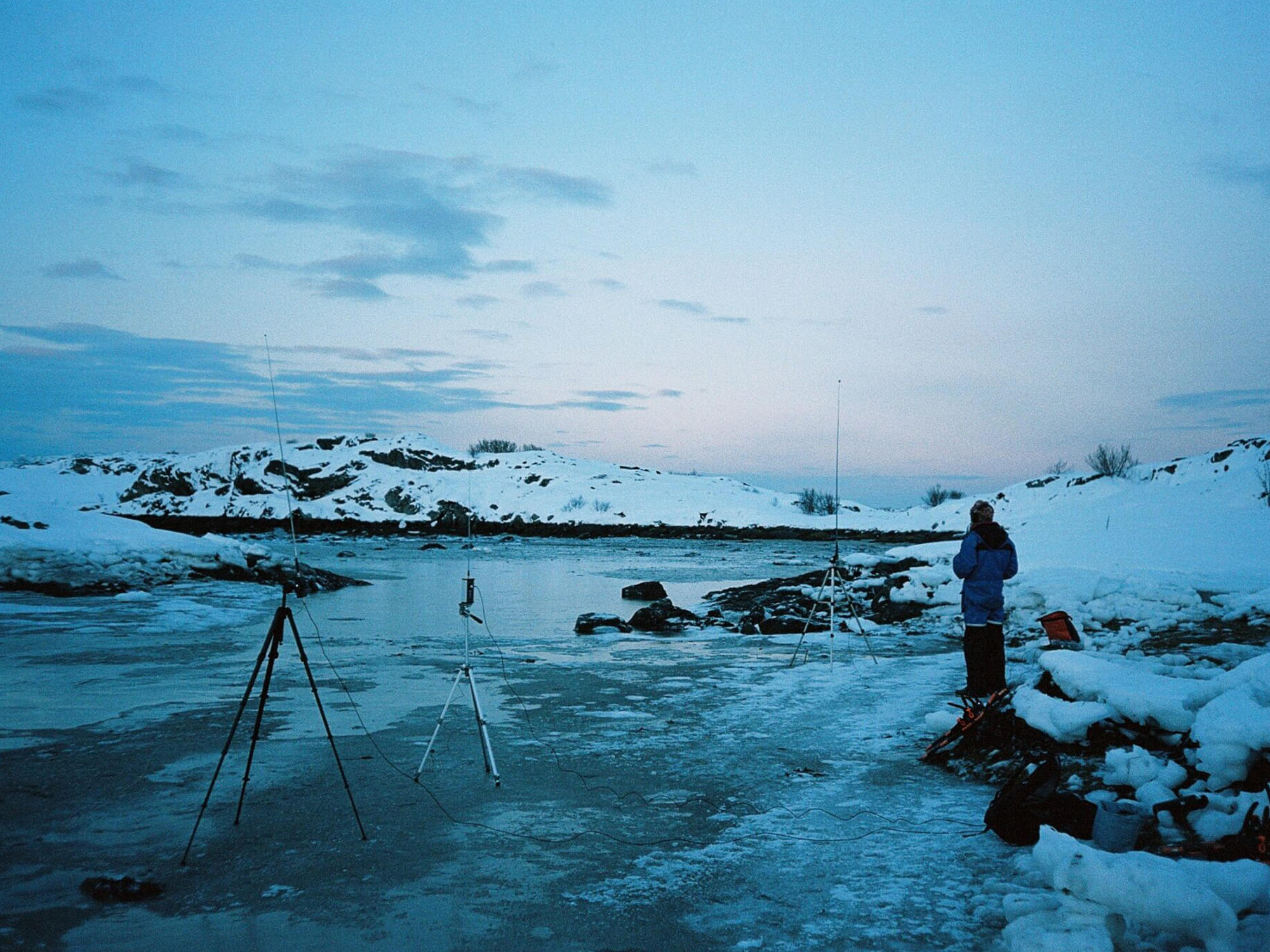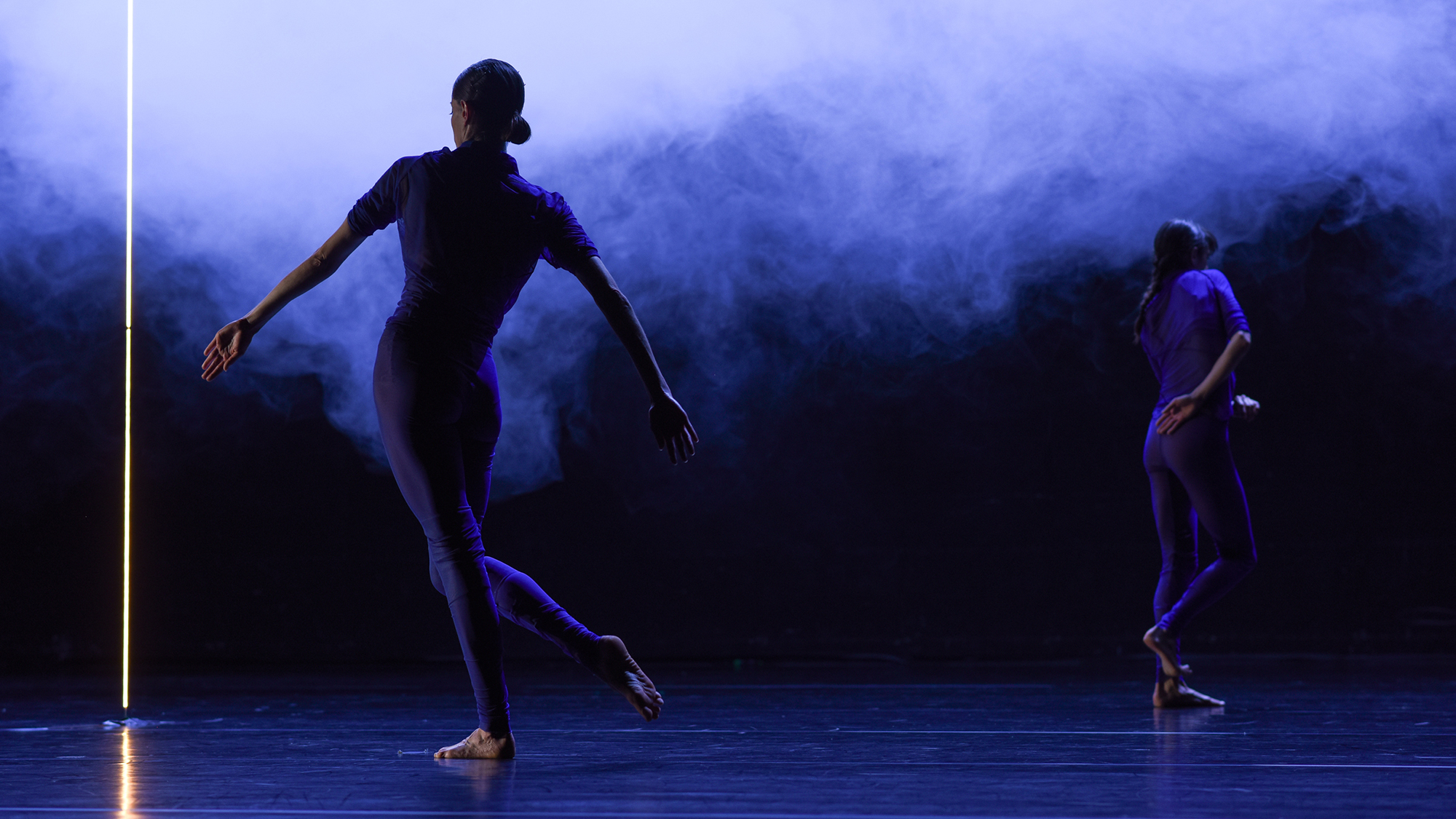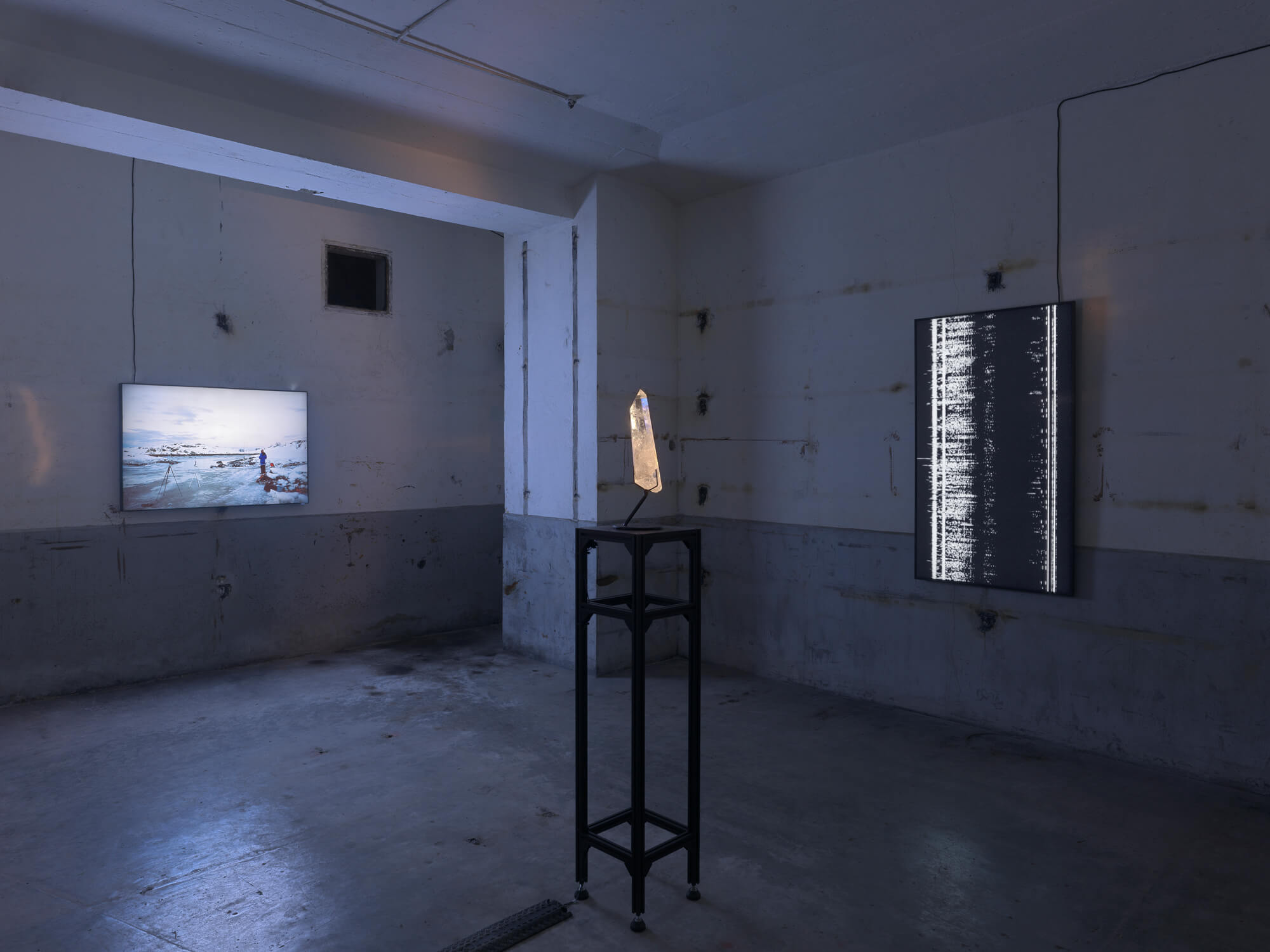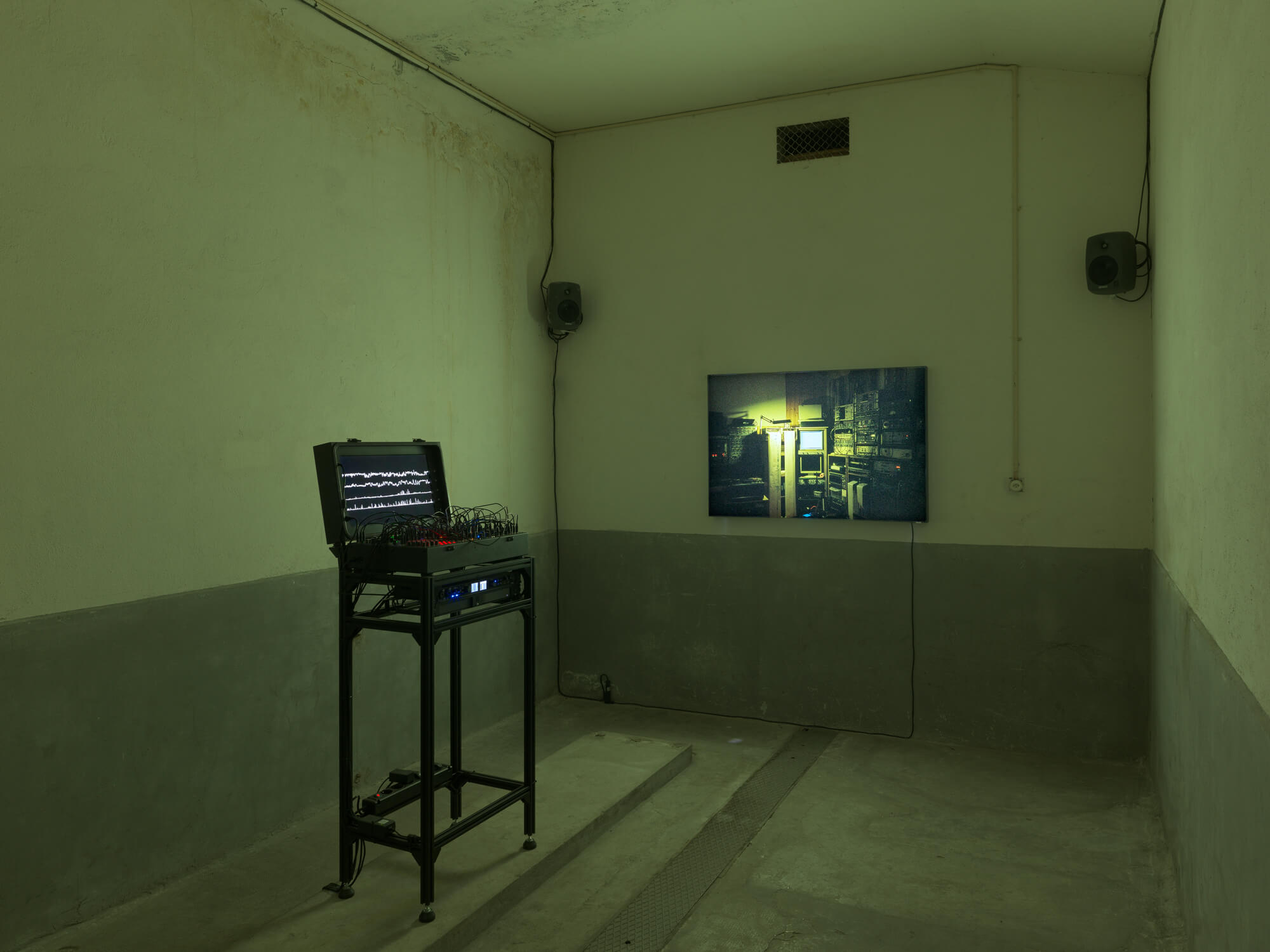
The Lights Which Can Be Heard
Artistic research
Since 2021, Sébastien Robert has been conducting artistic research into the sounds of the aurora borealis, long reported by various indigenous communities across the Arctic. Despite numerous testimonies, Western science denied their existence for decades, until hypotheses about their origin began to emerge in the 1950s. These ideas remain debated to this day. One theory suggests that certain natural elements, such as minerals or crystals, could act as receivers, converting the VLF (very low frequency) radio waves of the aurora into audible sounds.
Following a successful recording residency in Andøya, Norway, Sébastien Robert realized that these natural electromagnetic emissions are becoming increasingly difficult to perceive due to human activity. Overwhelmed by artificial signals, these radio waves are gradually disappearing from our perceptive field.
Inspired by this unique context, Sébastien Robert approached this phenomenon by combining indigenous, poetic and scientific perspectives, giving space to each while integrating his own vision. The result is a series of four interconnected works that invite the public to experience the sounds of the northern lights and reflect on their disappearance.
Electronic Evocations of Sound's Reality, 2022
Video work
Electronic Evocations Of Sound's Reality takes as its starting point 147 testimonies from surveys carried out in Canada, Norway and Russia since 1771, in which various indigenous communities living in the Arctic describe the sound of the aurora borealis. Their words stand out for their diversity, their characteristic onomatopoeia and their convergence to describe a phenomenon observed across different eras and regions. By juxtaposing these historical testimonies with his recordings made in October 2021 in Andøya, Norway, Sébastien Robert amplifies the voices of communities long marginalized by Western science. In so doing, he offers a new entry point into this ongoing debate, and invites us to immerse ourselves in a unique sonic and poetic universe.
That Dance Between The Poles Of Sound, 2022
Video work
This video completes Electronic Evocations of Sound's Reality. Based on the same recordings, it explores the phenomenon from a more scientific angle by analyzing their sonogram, a visual representation of the evolution of sound over time. On the left, continuous, regular bands reveal the hum produced by the power grid. On the right, similar bands correspond to various military telecommunications systems, very present in the Arctic due to the region's geopolitical context. Between these two, scattered and irregular shapes appear: these are natural very low frequency (VLF) radio waves generated by lightning, solar winds, and in this particular case especially by the aurora borealis. Increasingly masked by electromagnetic pollution, these natural signals are becoming difficult to perceive.
The Sun, My Father, 2022
Synesthaetic installation
Sébastien Robert's research has led him to discover the symbolic and scientific significance of quartz crystals. In various indigenous cosmologies, these minerals are considered to consist of solidified light and sound. In scientific terms, quartz is known for its piezoelectric properties, meaning that it becomes electrically polarized when subjected to mechanical stress. This property could explain why some people report hearing natural radio waves in the environment, as quartz can convert electromagnetic signals into vibrations perceptible to the human ear.
At the center of the installation, a quartz crystal receives a beam of light carrying very low-frequency natural radio waves produced by the aurora borealis. As the light passes through the crystal, it reaches a photoelectric sensor that converts the signal back into sound. Speakers distributed throughout the exhibition space then broadcast this sound. Transcended by light and sound waves, the crystal vibrates and sparkles, preserving forever a phenomenon that will soon disappear from our perception.
Magnetic Fluctuations, 2022
Real-time generative sound installation
Magnetic Fluctuations is a custom generative system that Sébastien Robert has been developing over the past three years in close collaboration with Dutch radio astronomer Rob Stammes. At its core is a modular synthesizer that translates real-time data from magnetometers, ultra-sensitive microphones and antennas installed at the Polar Light Center, a station monitoring aurora activity in Lofoten, Norway, into sound. These data, reflecting variations in electromagnetic activity, directly influences key sound parameters such as pitch, velocity and timing, transforming the aurora borealis into a dynamic musical composition. Straddling the boudary between composition and performance, the system operates with minimal procedural control while generating rich, complex soundscapes, creating a space where the aurora borealis can continously manifest their presence. Magnetic Fluctuations will be also performed at La Centrale on Saturday, November 8, 2025 at 8pm.
Sébastien Robert
Born in 1993
Based in The Hague
Sébastien Robert is an interdisciplinary artist and researcher working at the intersection of visual and sound arts, technology, science and ethnography. Since 2020, he has been developing a research cycle entitled You're no Bird of Paradise, which explores disappearing sound rituals and cosmologies. Beyond simple documentation, but distinct from formal ethnographic archiving, his work aims to translate these intangible resources into tangible, lasting artworks, using materials that resonate with the traditions of the communities encountered as well as with the geographical specificities of the territories explored. Through this approach, Sébastien Robert seeks to establish a dialogue between non-Western epistemologies and contemporary technologies, calling into question dominant modes of world perception and bringing to light often overlooked plural knowledge systems.
With the support of Mondriaan fund

Other artists

Tobias Koch

Kassel Jaeger (François J. Bonnet)
%20Michael%20McClanathan-02.webp)
John Giorno
Other artists

Carsten Nicolai

Eric Hattan with Oliver Senn




